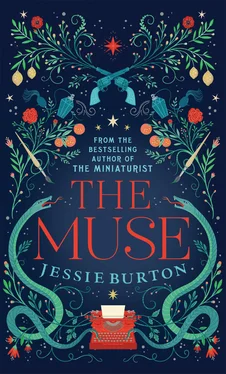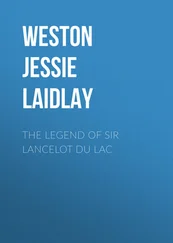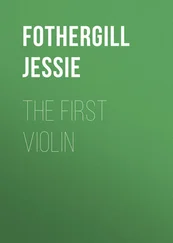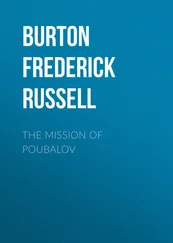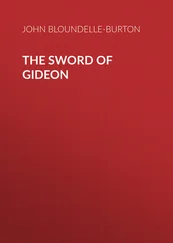‘Did Isaac accept your money, señora?’
‘No,’ said Sarah. ‘I did try. I hope he’s happy with Peggy Guggenheim’s, that’s all I can say.’
Teresa knew that Isaac had travelled to Malaga to pick up the money wired from Paris, and gone straight to the Workers’ General Union headquarters, donating two-thirds of it to pay for agitating pamphlets, clothes, an emergency fund for those laid off, and food. In some ways, you had to admire the efficacy of Olive’s plan, turning her painting into a political cause with her father the unwitting middleman. Isaac had kept the last third of the money, a fact which incensed Teresa. She’d told her brother to give it back to Olive, but he’d said that Olive wanted him to have it. ‘I have to eat,’ he’d said. ‘ We have to eat. Or do you fancy eating rats this year?’
Rats. Was that why she’d been dreaming about rats?
‘Teresa, are you listening to me?’
‘Yes, señora,’ Teresa said, folding up the last of Sarah’s camisoles and placing them in the wardrobe drawer.
‘I was his inspiration.’
‘I am sure he is very grateful.’
‘Do you think so? Oh, Teresa. I wish something would happen . I’m really beginning to miss London.’
Teresa plunged her hands into Sarah’s drawer of satins and gripped her fists out of her mistress’s sight. Then go, and take me with you , she screamed silently, even though she knew this was an impossibility. For all the pity she showed Sarah Schloss, the woman would never do such a thing in return.
Her father’s absence made it easier for Olive to see Isaac, and they met several times a week, usually in the cottage when Teresa was in the finca working and Sarah was taking her afternoon rest. For days afterwards, Olive could almost physically summon the memory of their meetings, how it felt when Isaac entered her — the indescribable sensation of making space for him as he pushed deeper, and what she believed was his utter bliss, mirrored by that of hers.
And yet, she never felt sated. Her appetite was unstoppable, a revelation; and she felt so happy that here was something she could summon whenever she wanted, but which never ran out. She felt that he improved her, he made her the woman she was meant to be. And afterwards, at night, she would lock herself in her attic, and paint. She was growing ever more confident, and saw Isaac as her key. This was not something Teresa would ever be able to understand — Isaac as essential to her development as an artist. Olive couldn’t bear to look at Teresa’s mournful face, her little scowl. It was an energy the opposite of him.
The olive trees, lined in serried swoops on the hillsides, were greening. Along the road, oranges were coming into fruit, and Olive scratched her nails on the hard skin, and made a scar on the early citrus. It was fresh, it was perfect, the world was fresh and perfect. What next to paint? What next to do? Everything was possible. She was now the Olive Schloss she was always supposed to be.
When she reached the cottage, Isaac was reading a letter by the wood burner in the kitchen. She walked towards him to give him a kiss, but Isaac held the letter out and stopped her path.
‘What is it? What’s wrong?’
‘This is from Miss Peggy Guggenheim. Read it for yourself.’
Disconcerted, Olive took the letter, sat at the table, and read.
Dear Mr Robles,
Harold Schloss gave me your address. Forgive my forwardness, but I do believe that in these matters, honesty of expression is invaluable. I hope that you, as an artist relatively new to these transactions, would agree. For I have no wish to be a faceless ‘purchaser’ — your work has enlivened my wall, and I am enthralled.
Olive looked up at Isaac, her mind racing. ‘Oh, Isaac. How wonderful—’
‘Read on,’ he said.
When Schloss said he had something special to show me, I was dubious. Art dealers say this a lot to me, and I am quickly learning to develop a “sang froid” when it comes to such declarations. But Schloss was adamant; even coming to Paris specifically to show it to me. He said you were from the land of the Moors and the endless starlit skies, of Arabic palaces and Catholic forts, where blood is in the soil and the sun beats the sierra. Your dealer may sound a theatrical Viennese, Mr Robles, but I have come to entirely trust his opinion.
I am so delighted I agreed to meet. The enriching effects of your painting change by the day for me. My friends, who know better than me, call it a chimaera, a chameleon, an aesthetic pleasure and a metaphysical joy. I would rather say that Women in the Wheatfield is not an easy painting to categorize, and that this is a good thing. Whilst I admire your figurative stubbornness in a time of abstract shapes, this is not to say I think you are part of a reactionary, regressive force — far from it. You are up to something new.
The colors — where to start with your colors? I joked to Herr Schloss, “perhaps if we cut Mr. Robles open, we will find a rainbow hiding inside?” But guard your hands, Mr. Robles — I know we will only find out this rainbow through the process of more paintings.
The overall spirit of Wheatfield to me feels mythical and unbridled. Yet there is something fastidious in your animals, as if their lines have been rendered by a Renaissance master with a realist’s touch — and the fact you have painted oil onto wood compounds this sense of tradition. It is both dream and nightmare, irreligious yet striving for some faith. Yet the colors of the women — their expressions, the sweep of the sky — they seem derived from a somewhat more modern soul.
This is just what I take from it, of course. You must do as other great artists do, and ignore all “opinion”. Anyway, Mr. Robles: I love it; take or discard that as you will.
Schloss probably told you that I am planning to establish a gallery in London next year, and I have your painting intended for the opening exhibition. I do not know if I shall be able to part with it for public consumption — I do not want to share it and for now, it hangs on my bedroom wall. There is a call to intimacy within it, a personal struggle and defiance that seems so essentially human — dare I say, so essentially female — which has come to beat inside me like an extra heart.
But I want to be a good collector, you see — and good collectors always share. I would love for you to see it on the public wall.
I will never make an artist explain himself to me, unless he himself chooses to do so — so I ask here no questions of impulses, process, your wishes for what may come. But here is my one request. Schloss has assured me that there will be opportunities to see more work, and all I ask is that you consider me a supporter. To wit: when it comes to showing you to the wider world, I would love to be your first port of call. The first of anything is so often the most indefatigable.
Yours, in admiration,
Peggy Guggenheim
Olive started to laugh, giddy laughter — the laughter of someone whose lottery ticket has just come through; her winner’s mind already racing over the transformations of her life to come. ‘Oh, Isaac,’ she said. ‘You’ve made a new friend. She loves it.’
‘She is not my friend.’
‘Come on, Isa. There’s nothing to worry about.’
He went very still. ‘Is it true that your father has told her I have more paintings?’
Olive placed the letter slowly on the table. ‘I don’t know. That’s the honest truth. But it’s inevitable he would — he’s a dealer. It’s half his job. He got Guggenheim — hook, line and sinker — and he wasn’t going to let her go again without a little bait.’
Читать дальше
